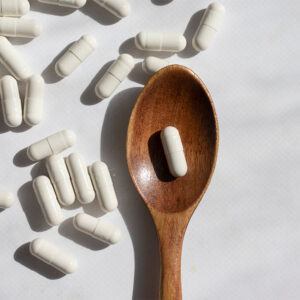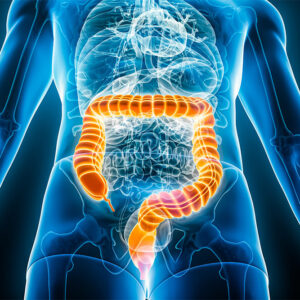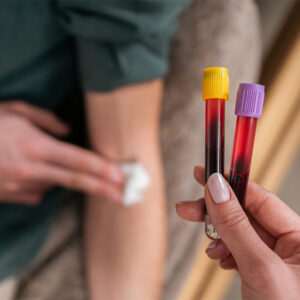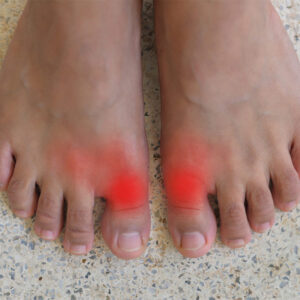
“Invisible” disease sends liver cancer risk soaring
Dear Living Well Daily Reader,
With almost no symptoms in the beginning, nonalcoholic fatty liver disease (NAFLD) could be stalking you right now without you having a clue.
In fact, studies show that 25 percent of Americans already have the disease. And those numbers are on the rise.
What’s so bad about having some fat in your liver? A LOT.
The fat buildup is a sign that your overworked liver can no longer do its job effectively. As fat accumulates, it can lead to increased inflammation, liver damage, and eventually liver failure. It’s part of why there’s a virtual epidemic of people needing liver replacements right now.
Worst of all, having a fatty liver can send your risk of liver cancer soaring by a stunning 17 TIMES!
But not everyone with NAFLD gets liver cancer, of course. And knowing precisely who IS most at risk could help save lives.
Now scientists say we can do exactly that.
The study, published in the journal Science Translational Medicine, uncovered a group of blood markers that point the way to the people at the highest risk for NAFLD-linked liver cancer.
Traditionally, people with NAFLD are forced to have ultrasounds of their livers every six months. Ultrasounds are relatively painless, but they can be uncomfortable and lead to a lot of anxiety.
The researchers analyzed the blood of 409 NAFLD patients. They pinpointed a set of 133 genes that were expressed at higher or lower levels in those folks who developed liver cancer during a 15-year follow-up period.
The volunteers were divided into high and low-risk groups based on how much the identified genes were expressed. A sobering 22.7 percent of the participants in the high-risk group developed cancer. While no one in the low-risk group developed the disease.
In other words, we can now test to see which folks fall into the low-risk group. Those who do can skip the twice-yearly ultrasound and just use a blood test alone to monitor their status.
But I have an even better idea. How about we take steps to help stop NAFLD in its tracks instead?
You see, a healthy liver breaks down the fats we eat and converts excess carbs and proteins into forms that can be stored and used later. But when the liver is overwhelmed and can’t process and break down fats as it should, that fat starts to build up.
But we CAN take steps to avoid this fat accumulation from occurring in the first place.
Dr. Scott’s Fatty Liver Fix:
- Control blood sugar. Cut way back on added sugars, ultra-processed high-carb foods, and starchy vegetables in your diet. Foods like pasta, crackers, and white bread quickly convert to glucose in your blood, eventually leading to fat buildup around your liver. Exercise regularly. A brisk daily walk should do the trick. And consider taking supplements that support healthy blood sugar levels, such as berberine, curcumin, and chromium.
- Ditch the sugary drinks. This step goes along with controlling your blood sugar. But sugary drinks are so bad for your liver that they deserve some special attention. You should BAN these beverages from your life. That includes sodas, fruit juices, flavored coffee drinks, sports drinks, and sweet teas. They send your blood sugar soaring, causing insulin levels to spike. And this can lead to fat building up in your liver.
- Maintain a healthy weight. Keeping your weight in check can be easier said than done. But there are steps you can take to help you reach a healthy weight, including boosting your metabolism and maintaining your muscle mass. And when you do, your body becomes better at regulating blood sugar keeping your liver from accumulating more fat.
- Use liver-supporting herbs. I like milk thistle, dandelion, and turmeric for liver support.
- Reduce inflammation. Try fish oil, turmeric, and olive leaf extract.
PS: Protecting your liver isn’t just about giving up things. Researchers have found that regularly indulging in THIS delicious beverage could send your risk for liver disease plummeting. Find out what it is right here.
SOURCE:
“Molecular signatures of long-term hepatocellular carcinoma risk in nonalcoholic fatty liver disease,” Science Translational Medicine (2022). DOI: 10.1126/scitranslmed.abo4474
Written By Dr. Scott Olson, ND
Nearly 25 years ago, failed mainstream medical treatments left Dr. Olson in constant pain – and his health in ruins. And that’s when he did something REVOLUTIONARY. He began his career in medicine – and dedicated his life to uncovering the true, underlying causes of disease.
Through his innovative medical practices in Tennessee and Colorado, Dr. Olson has helped cure countless seniors from across America of arthritis… heart disease… diabetes… and even cancer. All without risky prescription drugs or painful surgeries.
View More Free Articles
Discover WHY We Accidentally Overeat (and How to Stop)
Picture this… You finish eating a nice meal feeling just fine. But then, 20 minutes later, you’re groaning and clutching your belly because you feel uncomfortably stuffed. If this sounds familiar, you’re in good company. Most of us have had this happen. Science reveals why accidental overeating occurs… and what we can do to avoid...
Find Exercise Exhausting and Painful? Try THIS Natural Fix
If you’ve heard it once, you’ve heard it a thousand times: “You need to exercise.” And sure, you know how vital it is to healthy aging. But let’s be honest, sometimes it feels nearly impossible to get moving—especially when you know you’ll be sore for DAYS after. However, hold on to your seat because I’ve...
Mailbag: Unsteady on Your Feet? Now What?
“I’ve been having trouble with my balance lately and have fallen a couple of times. Could this be related to osteoporosis or another underlying cause?” – John Hi John, It’s always concerning when someone experiences balance issues or falls. While osteoporosis can contribute to an increased risk of falling, several other underlying causes should also...
Is There Really a Hidden Benefit to BROCCOLI?
Just when we thought broccoli’s resume couldn’t get any more impressive, new research proves us wrong. The phytonutrients in this tasty veggie can lower inflammation… balance blood sugar… and even boost your memory. And you likely already know of broccoli’s legendary prowess in preventing cancer. Now, a new study reveals that sulforaphane, the potent compound...
Belly Trick BOOSTS Brain Function
Boy do I love a cheap and easy solution. And if you can’t resist a good bargain either, keep reading. Because I have a brain-boosting one to share that fits the bill. If you’re like most folks, you intend to stay as sharp as a tack well into your golden years. So, you’re always on...
The Hidden Heart Danger LURKING in Your Gut?
Dear Living Well Daily Reader, Living with inflammatory bowel disease (IBD) is no walk in the park. The cramping, the urgency, the endless trips to the bathroom—it’s a daily struggle that can leave you exhausted and frustrated. And here’s the kicker: sometimes, IBD’s vague symptoms can lead to misdiagnosis or even NO diagnosis at all....
Has the Key to Unlocking Better MS Treatments Been Found?
Dear Living Well Daily Reader, Imagine waking up one morning and feeling a strange tingling in your fingers. You brush it off, thinking it’s just a pinched nerve. But then, your vision starts to blur, and your balance is thrown off. Suddenly, you’re faced with a terrifying reality: you have multiple sclerosis (MS). For the...
6 Secret Ways to Spot HIDDEN Processed Foods
“Avoid eating processed foods,”—If I’ve said it once, I’ve said it a thousand times. The reason why is simple. These Frankenfoods are designed to satisfy your taste buds. But they leave your body full of foreign chemicals that can cause harm and in need of more nutrients. But a patient asked me the other day,...
8 Red Flags There’s a Heart Attack in YOUR Future
Humor me and count to 40. Done? According to the Centers for Disease Control and Prevention (CDC), someone in the United States just had a heart attack. That adds up to around 805,000 people a year. Many of those were a “silent” heart attack, with the victim having no clue it even happened—and they go...
Mailbag! Neuropathy Pain? Ease Tingling in Hands and Feet
“I’m diabetic and have burning, tingling pain in my feet. My doctor says it is peripheral neuropathy, and there aren’t any cures. But do you have any tips to help me deal with it?” —Hank Hi Hank, Uncontrolled blood sugar can trigger nerve pain called peripheral neuropathy. This condition causes pain and numbness, usually in...









